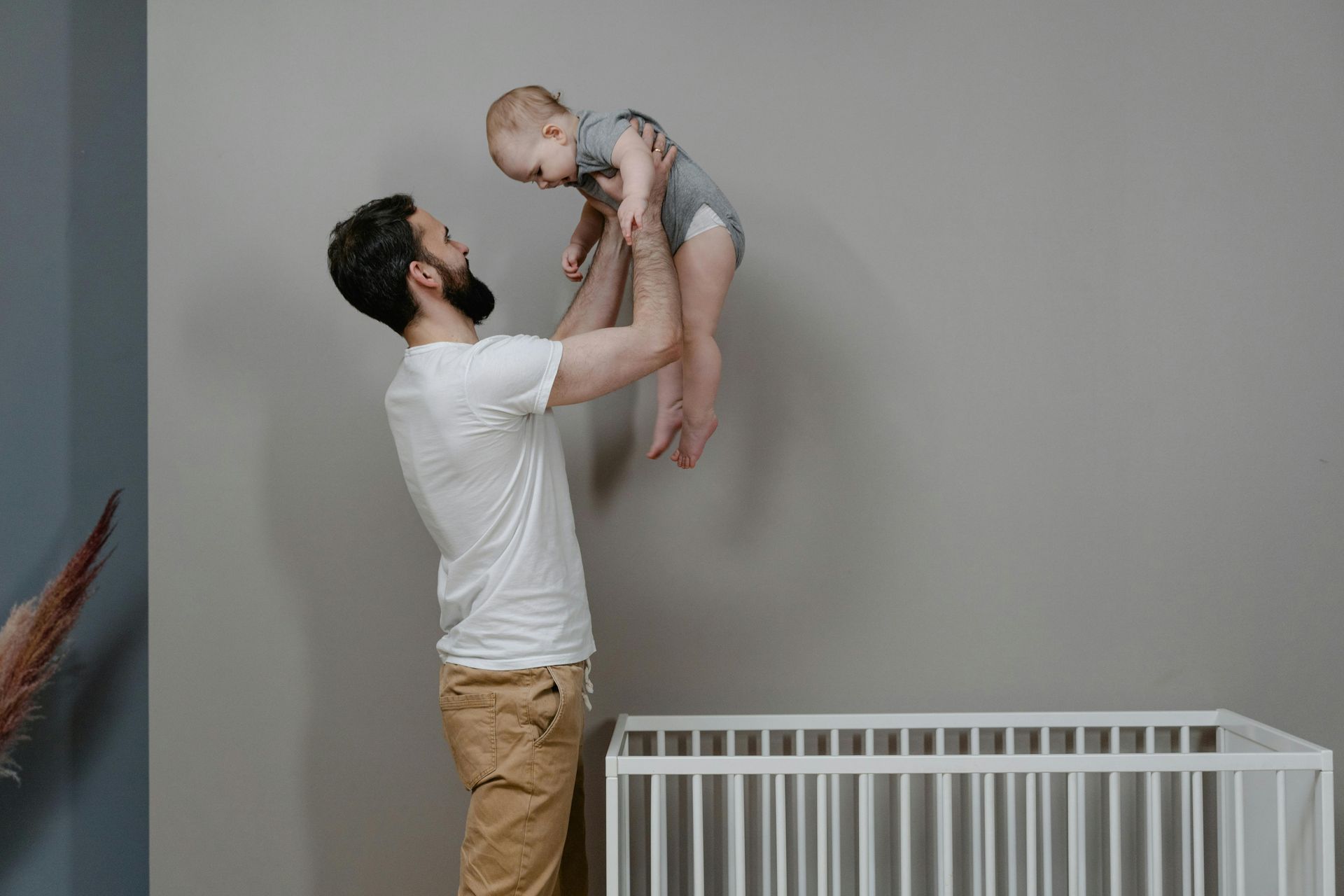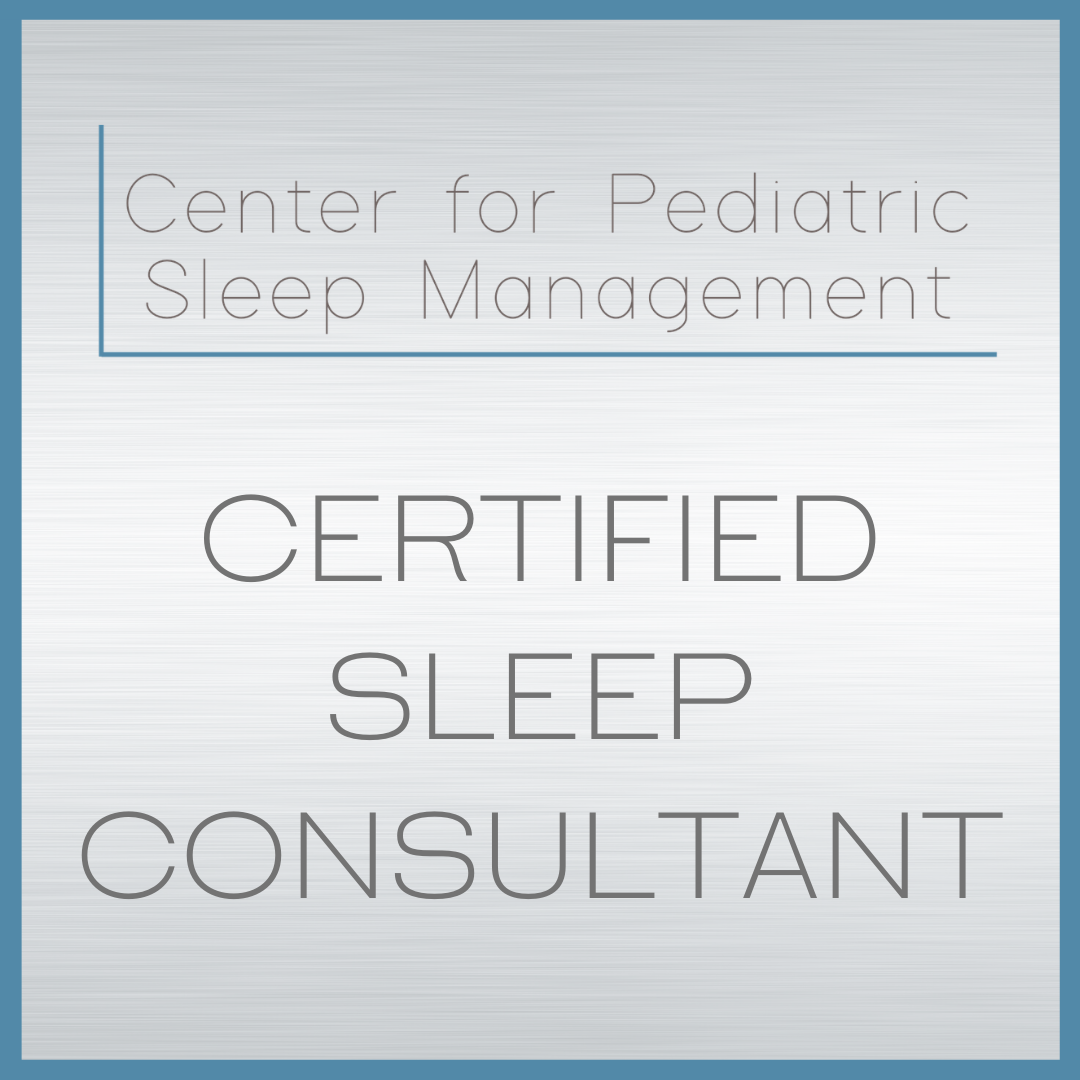Common Sleep Myths and Misconceptions Debunked! - What Every Parent Needs to Know
Lacy Hess • March 16, 2025
Are these common sleep myths keeping your little one from sleeping through the night? Learn the truth about baby and toddler sleep and how to create healthy sleep habits.

Debunking the Most Common Baby & Toddler Sleep Myths
If you’ve ever received conflicting advice about your child’s sleep, you’re not alone. There are so many misconceptions about baby and toddler sleep that can make it difficult to know what’s best. Let’s clear up some of the most common myths and misconceptions so you can set your little one up for sleep success!
Newborn & Infant Sleep Myths
1. "Keeping baby awake longer during the day will help them sleep better at night."
Actually, the opposite is true! Overtired babies have a harder time falling asleep and staying asleep. Keeping wake windows age-appropriate helps prevent this.
2. "You should never wake a sleeping baby."
While it’s tempting to let a sleeping baby rest, sometimes waking them is necessary to maintain a healthy sleep schedule—especially for naps or feedings in the early months.
This is especially true in the newborn stage when feedings are so frequent.
3. "Formula-fed babies sleep better than breastfed babies."
While formula takes longer to digest, sleep is influenced by many factors beyond feeding method, including routines, environment, and sleep associations.
4. "Babies will just learn to sleep when they’re ready."
Some babies are naturally good sleepers, but most need guidance and consistency to develop independent sleep skills. Teaching healthy sleep habits early can make a big difference.
5. "You can't sleep train a breastfeeding baby."
Breastfeeding and sleep training are not mutually exclusive! Many breastfeeding babies can learn to sleep independently while still nursing on demand. Sleep training is about establishing healthy, independent sleep habits, not eliminating feedings. With the right approach, breastfeeding parents can maintain their nursing relationship while also helping their baby develop self-settling skills and better sleep patterns.
Toddler Sleep Myths
6. "Dropping naps early will help them sleep better at night."
Toddlers still need daytime sleep! Most don’t drop naps completely until around 3-4 years old. Skipping naps often leads to overtiredness and more night wakings.
7. "Moving a toddler to a big-kid bed early will fix sleep struggles."
If a toddler is already struggling with sleep, switching beds too soon can make things worse. Many toddlers sleep best in a crib until at least 3 years old.
8. "They’ll grow out of bedtime battles eventually."
Sleep struggles don’t always resolve on their own. In fact, they often become ingrained habits. Addressing bedtime challenges early leads to better long-term sleep.
9. "A later bedtime means a later wake-up time."
Overtired toddlers often wake up earlier, not later! An earlier bedtime can actually lead to more restful and longer sleep.
10. "You just have to accept that kids won’t sleep well."
Healthy sleep habits can be taught! Parents don’t have to suffer through years of sleepless nights—small adjustments can make a big impact.
Other Common Sleep Misconceptions
11. "If my baby cries when I put them down, they must not be ready for sleep."
Crying at sleep times is often a sign of adjustment, not an indication that they don’t need sleep. Babies protest change, but a consistent routine helps.
12. "Sleep training means ‘cry it out.’"
There are many parent present sleep training methods that don’t involve leaving your baby to cry alone for hours. The goal is to create independent sleep skills in a way that aligns with your parenting style.
13. "Feeding to sleep is the only way my baby will sleep."
While feeding to sleep is natural and comforting, it can become a sleep association that makes it harder for your baby to link sleep cycles independently. Using a sound machine or comfort item (if age-appropriate) can help.
14. "Naps aren’t that important as long as they sleep at night."
Naps play a huge role in nighttime sleep! An overtired child from skipped or short naps often has more difficulty settling at bedtime and staying asleep.
15. "If they wake up at night, they must be hungry."
Newborns need frequent feedings, but older babies and toddlers often wake out of habit rather than hunger. If your child is waking multiple times a night and they’re past the age of needing night feeds, it might be time to adjust sleep habits.
16. "Using a sound machine is a sleep crutch."
Using a sound machine isn’t a crutch—it’s a tool! It can mimic the womb's sounds and helps drown out household noise, creating a consistent sleep environment that promotes deeper rest. I like to call this a positive
sleep association.
17. "My child will just grow out of their sleep struggles."
While some sleep challenges improve over time, many do not resolve on their own without guidance. Teaching independent sleep skills early can prevent years of ongoing struggles.
18. "My child just doesn’t like the crib."
Most babies and toddlers can learn to love their crib when it’s part of a predictable sleep routine. If your child struggles in their crib, it’s often due to a sleep association or a need for consistency rather than the crib itself.
Helping Your Child Sleep Well Starts Today!
Now that we’ve debunked these common sleep myths, you can take steps toward creating better sleep habits for your little one. If you haven't already, make sure you sign up for my email list to receive weekly sleep tips, new resources, special offers, and more!
If you're looking for expert guidance on improving your child's sleep, book your FREE consultation today and let's talk about how I can help bring sleep back to your home!




